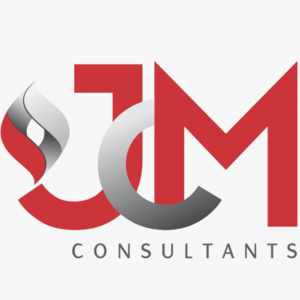Desktop & Cloud Support Specialist
Primary duties and responsibilities:
We are looking for a Desktop & Cloud Support Specialist to provide technical assistance to our employees and to ensure proper computer and software operation so that end users can accomplish business tasks. In this role you will assit with the installation, upgrading and troubleshooting of hard ware and software, as well as provide cloud support. This includes receiving, prioritizing, documenting, and actively resolving end-user help requests and escalating incidents when considered appropriate and necessary to maintain SLA expectations. Problem resolution may involve the use of diagnostic and help request tracking tools, as well as requiring that the individual give in-person, hands-on help at the desktop level.
Required Qualifications:
- College diploma or degree in the field of information technology.
- CompTIA A+ Core 1 and Core 2
- CompTIA Network+
- CompTIA Security + (Security Specialist)
- CompTIA Linux + (LPIC1)
Experience and Knowledge Required:
- 3-5 years’ work experience in a Support Desktop/Cloud Specialist environment.
- Knowledge of computer hardware, desktop, and server operating systems.
- Extensive application support experience with:
- Microsoft 365 and Power Platform
- Microsoft Azure (provisioning and license management)
- oMicrosoft SQL Server (SSMS, SSIS)
- Microsoft Dynamics (customer service hub, basic knowledge of architecture components, setup and configuration)
- Domain and Web Hosting
- Familiarity with the fundamental principles of ITIL.
Key Responsibilities:
- Provide first contact support of incoming requests to the service desk via telephone, email and chat to ensure courteous, timely, and effective resolution of end-user issues.
- Elicit problem details from service desk customers.
- Build relationships with service desk customers.
- Prioritize incidents and service requests according to defined processes to meet defined SLAs.
- Escalate incidents with accurate documentation to suitable team member, when required.
- Record, track, and document the service desk incident-solving process, including all successful and unsuccessful decisions made and actions taken, through to final resolution.
- Use remote tools and diagnostic utilities to aid in troubleshooting.
- Research solutions through internal and external knowledgebase as needed.
- Identify and learn appropriate software and hardware used and supported by the organization.
- Perform hands-on fixes at the desktop level when remote tools are not appropriate, including hardware repairs, delivery of peripherals, or other fixes as determined.
- Install antivirus software and ensure virus definitions are up to date.
- Perform preventative maintenance, including checking and cleaning of workstations, printers, and peripherals.
- Test fixes to ensure an incident has been adequately resolved.
- Develop help sheets and FAQ lists for end users.
- Contribute to technician knowledgebase as needed.
- Reinforce SLAs to manage end-user expectations.
- Provide suggestions for continual improvement.
- Perform post-resolution follow-ups with service desk team and customers, as required.
- Deploy pre-packaged software as needed using automated deployment tools.
- Assist in software releases and rollouts according to change management best practices.
- Evaluate documented resolutions and analyse trends for ways to prevent recurring issues.
Competencies:
- Critical Thinking: Using logic and reasoning to identify the strengths and weaknesses of alternative solutions, conclusions or approaches to problems.
- Active Learning: Understanding the implications of new information for both current and future problem-solving and decision-making.
- Deductive Reasoning: The ability to apply general rules to specific problems to produce answers that make sense.
- Inductive Reasoning: The ability to combine pieces of information to form general rules or conclusions (includes finding a relationship among seemingly unrelated events).
- Systems analysis: Determining how a system should work and how changes in conditions, operations, and the environment will affect outcomes.
- Complex problem solving: Identifying complex problems and reviewing related information to develop and evaluate options and implement solutions.
- Systems evaluation: Identifying measures or indicators of system performance and the actions needed to improve or correct performance, relative to the goals of the system.
- Selective Attention: The ability to concentrate on a task over a period of time without being distracted.
- Attention to detail: The ability to notice slight deviations between two data/ information sources.

Leave a Reply
Want to join the discussion?Feel free to contribute!